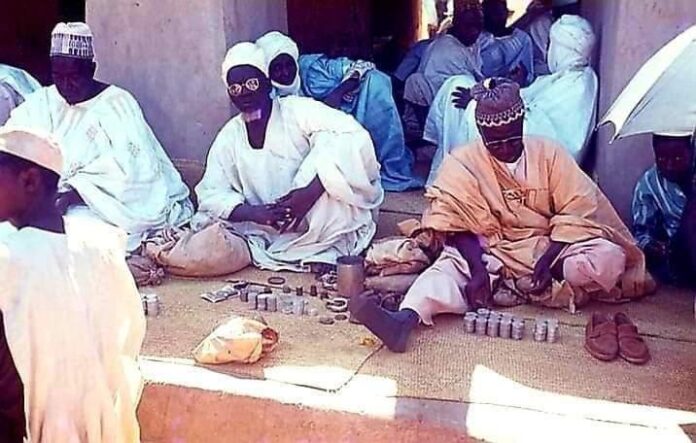WAPA: Development of currency trade in Hausaland
A picture taken in 1964 at the famous ‘WAPA’ market in Kano State shows that currency exchange is an old-time trade of the Hausa people.
Wapa, which was established as a centre of currency exchange after the second world war, was said to be established somewhere between 1946 and 1948.
Originally, Wapa was more than just a currency market. In fact, the acronym ‘WAPA’ stands for West African Pilgrims Association, which has nothing to do with currency exchange, except that the main founder of the association, Mamuda Dantata, became a currency dealer.
During the early period of the Wapa currency trade, transactions largely involved coins rather than notes. Nigerian coins were parcelled in sacks of £100 (N 200), while CFA France coins were tied up in units of CFA 1,000.
The development of currency trade in Wapa is closely associated with its history as a stopping point for traders and travellers from North and West Africa, as well as a starting point for pilgrims travelling to Saudi Arabia.
Follow the Neptune Prime channel on WhatsApp:
Do you have breaking news, interview request, opinion, suggestion, or want your event covered? Email us at neptuneprime2233@gmail.com





